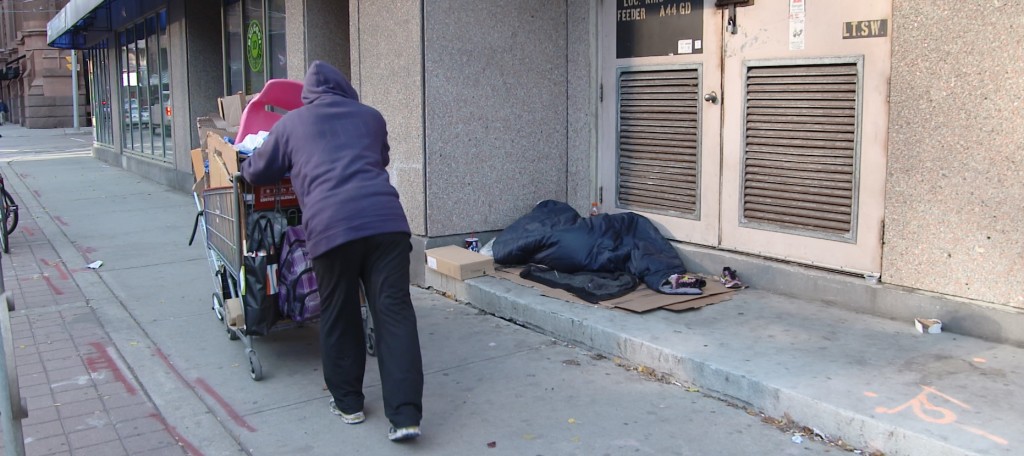When we first started researching Hold Your Fire, we spent a long time looking for answers in statistics – trying to figure out if the increase in police shootings of people in crisis is simply because there are so many interactions. We ended up concluding that the question we really had to look at is – how can any police shooting of a vulnerable person be prevented? – because the number of interactions just keeps going up.
Police have become de facto frontline mental health workers as police services struggle to keep up with a mental health crisis that has effectively been dumped in their laps. Jennifer Chambers of Toronto’s Centre for Addiction & Mental Health says the economy is partly to blame – once people lose housing they’re more likely to end up in personal crisis. In Toronto in 2014, police handled 20,000 interactions with people in crisis. (In Vancouver, one spokesman said the annual number is closer to 30,000.)

While filming in downtown Toronto to illustrate the point about the link between the economy and people in mental crisis, we met a man named Alexander who consented to be filmed going about his day with all his worldly possessions in a shopping cart. When we said good-bye, we gave him a little money to say thank you. Unbeknownst to him, we filmed one last shot of Alexander as he rolled his cart away down the street…and then stopped, to give the money away to another homeless person who was fast asleep on top of a heating vent. You couldn’t help but be moved.
